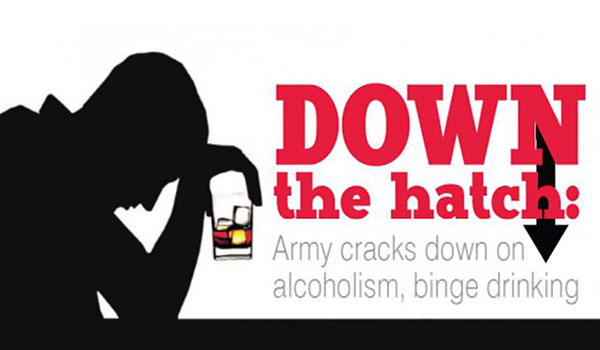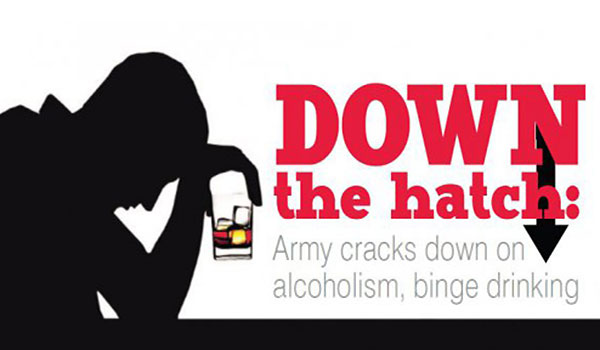
Ask the Flight Surgeon / By Dr. (LTC) Joseph Puskar: Q: I have a history of an alcohol related incident. Is it possible to get a flying waiver for this?

PHOTO: www.army.mil
FS: A single episode of alcohol misuse will be filed as information only provided that a current Army Substance Abuse Program (ASAP) evaluation reveals no underlying problem with abuse or dependence. But for an active duty service member the flying waiver will likely be the least of the worries. The effects for example of a DUI will at a minimum be painful and difficult, and potentially disastrous, depending upon the severity of the incident and if injury or property damage is involved. The idea behind ASAP is to help you before a major career and life-changing mishap occurs. Go to the ASAP annual training classes, pay attention, and take it seriously; bad things can happen to anyone who drinks alcohol.
The seven stages of alcohol impairment with corresponding blood alcohol percentages are:
- Sobriety (.01-.05): No apparent influence.
2. Euphoria (.03-.12): Sociability, talkativeness, increased self-confidence, decreased inhibitions, diminution of attention, judgment, and control.
3. Excitement (.09-.25): Emotional instability, loss of critical judgment, impairment of memory and comprehension, decreased sensory response, delayed reactions.
4. Confusion: (.18-.30): Disorientation, mental confusion, dizziness, decreased pain senses, impaired balance, staggering gait, slurred speech.
5. Stupor (.27-.40): Apathy, markedly decreased response to stimuli, inability to stand or walk, vomiting, incontinence.
6. Coma (.35-.50): Complete unconsciousness, coma, anesthesia.
7. Death (.45 +)
The long term effects of alcohol overuse include tolerance and dependency and can lead to cognitive decline and dementia, liver damage and cirrhosis, anemia, cancer, cardiovascular disease, depression, seizures, gout, and pancreatitis to name just a few.
The legal impacts of a DUI or alcohol-related incident go far beyond being grounded from flying and needing an aeromedical summary. Even if not found guilty, and depending upon the level of severity of the offense, it can result in loss of security clearances, a General Officer Memorandum of Record in your file, and can lead all the way to a less than honorable discharge and loss of benefits. If discharged from the military due to a DUI, it will be much more difficult to gain other employment since even a single arrest, even without a conviction, will remain on your background check permanently. Though alcohol use is still glamorized in many circles, these catastrophic effects are no joke, and a terrible price to pay for one night’s fun.
Don’t get yourself caught in this trap. Too many people depend on you, and are counting on you to stay in the fight. You’re too valuable to the Army not only in terms of the time and money spent to train you, but also for all the good you can continue to do for our Army and society in general. If you think for even a moment that your drinking is becoming a problem, reach out for help and get the education and counseling that is available from ASAP, behavioral health, the chaplain and your flight surgeon before something catastrophic like a DUI or other alcohol-related incident occurs. And please do not even think of getting behind the wheel if you’ve had even one drink. Take a taxi out and back, call or take a designated driver, drink only one ounce equivalent drink per hour and three total maximum, get a hotel room, stay put another hour or two, eat a good meal, and drink lots of water to help dilute and metabolize it. Hide your car keys where you can’t find them. Best of all, don’t even drink in the first place; it’s not worth losing your career over. Do anything it takes to save yourself from this ever-lurking menace!
Farewell
The past four and a half years writing here as your AAAA flight surgeon sure have flown by fast. It has been a humbling experience and true honor to be part of such a great organization, but it is now time to pass the torch off to some very capable hands. COL Mark McPherson is the Dean of the U.S. Army School of Aviation Medicine, and he has a potent team of cadre and aerospace medicine residents to help him in keeping you up to date with the latest in aviation medicine topics and developments. Special thanks go to the editor of Army Aviation, Joe Pisano, and staff. They do what it takes to put together a great publication ten times a year, and it has been a true pleasure to work with them.
I’ll miss hearing from you all too, but hopefully I’ll see you out there again someday, somewhere on the flight line!
Safe flying!
Doc Puskar
Editor’s Note: Dr. (LTC) Joe Puskar has been the longest running author of this column during my tenure and voluntarily continued providing this column of advice and feedback during the transition at USASAM. We at ARMYAVIATION say “Thank you, Doc,” and wish him well in the future. As he would say – “Push it up! Scouts Out!”
Question for the Flight Surgeon?
If you have a question you would like addressed, email it to This email address is being protected from spambots. You need JavaScript enabled to view it.; we’ll try to address it in the future. See your unit flight surgeon for your personal health issues. The views and opinions offered are those of the author and researchers and should not be construed as an official Department of the Army position unless otherwise stated
Dr. (LTC) Joseph Puskar is a flight surgeon at the U.S. Army Aeromedical Center, Fort Rucker, AL.










